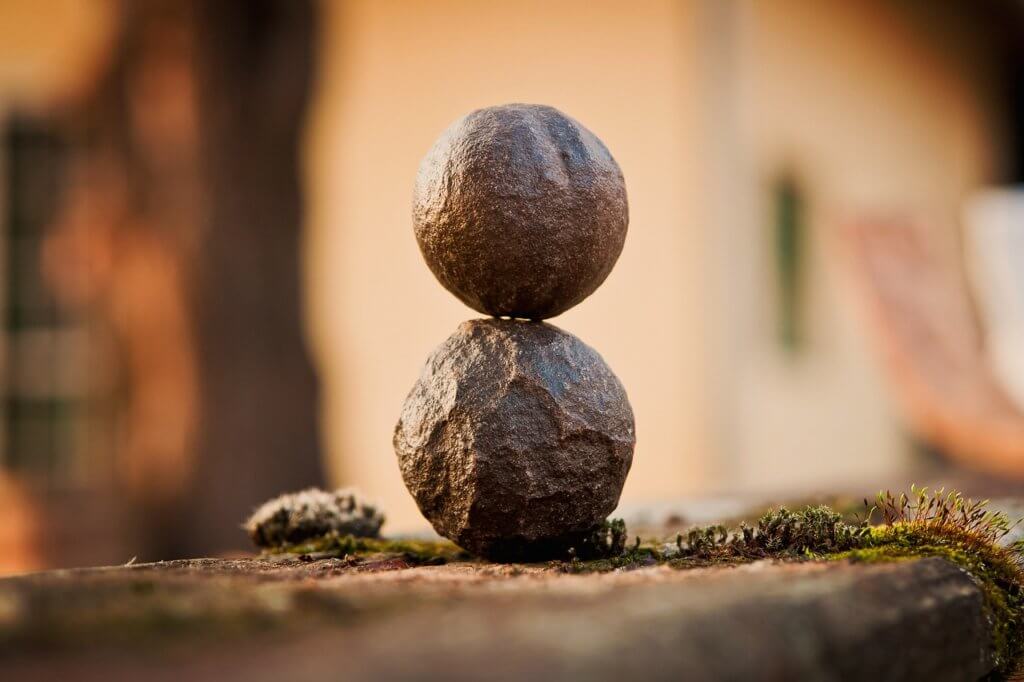You’re scrolling through social media and, once again, you’re bombarded with pictures of ‘perfect’ couples and their carefully curated love stories. Or maybe you are watching one of the thousands of Hollywood movies that have been made over the decades that have ingrained a certain image of what romance, love and relationships look like (related: check out my post on Plato’s Cave for more on societal projections).
We like to think that we act as independent individuals at all times and that all ideas about things are our own, but the truth is we are influenced by our culture more than we like to admit. So it’s easy to buy into the idea that love should look a certain way, especially when the world around us keeps reinforcing the same myths about romantic love.
In this post I aim to challenge some of these widespread myths and offer a deeper understanding of love that can apply to anyone, regardless of their relationship status. It’s about getting a handle on how we might be sabotaging our relationships or dating prospects, as well as understanding some of the myths that have become part of our autopilot responses.

THE IDEA OF “SOULMATES”
The idea of the soulmate—the person who’s supposed to complete you in every possible way, is not necessarily new but its intensive adherence is something we only find in the modern age.
But have you ever stopped to think how much pressure this puts on you and your relationships? Partners might expect a fairy-tale romance and become disillusioned when faced with the normal challenges and conflicts that arise in any relationship. The idea that there’s one perfect person out there for you can make you question good relationships and romanticize problematic ones. It can make single individuals feel as if they are failing at a critical life task.
As our traditional meaning making structures, like the community, cultural or religious ones erode or fall, people increasingly apply the same meaning making needs to other parts of their lives. This can lead people into seeing romantic relationships (the ‘soulmate’) as THE defining feature of their lives, something that sets them up for continual suffering as the reality gap of expectation is not fulfilled.
HAPPILY EVER AFTER
Thanks to fairy tales and romantic comedies, we’ve been spoon-fed the idea that true love should lead to a flawless future, free of challenges or doubts. This creates unrealistic expectations. Life is a series of ups and downs, and so is love. Nothing in life is permanent, and this includes our emotions.
So expecting to be “happy ever after” sets us up for disappointment. To manage our expectations we should learn to discern what is deception, self or otherwise, and preconceived beliefs handed down to us. This involves switching off autopilot, which will be covered in a future post.

LOVE AS A FOUNDATION FOR MARRIAGE
Once upon a time, marriage was a social contract, often arranged to consolidate power, wealth, or land. Today, love has become the central reason for marriage. But is love alone sufficient for a lifelong commitment?
Sometimes the intensity of love, or its idea of it, can cloud our judgment, making us overlook fundamental issues like compatibility or utility. Marriage has been described by some as a leap of faith into the unknown, requiring more than just love to sustain it, rather it’s a continual process, never ending. There’s more to relationships than just love, and in our modern day we forget the hard work and qualities required to make it successful.
SELF-ACTUALIZATION THROUGH RELATIONSHIP
The ‘meant-to-be-together’ narrative often extends to the idea that your partner should help you become the best version of yourself. This is another expectation that has been developed from complex cultural ideas, and one that is worth being aware of as combined with the modern world’s obsession with ‘self actualization’, the areas overlap and boundaries blur.
While growth is important, expecting your partner to serve as your personal therapist, career advisor, and life coach is both unfair and unrealistic. This can lead to disappointment and an imbalance in the relationship where one partner may feel responsible for the other’s personal development.
Growth will occur together, as all relationships grow or wither, but the key is to recognise when one is using the relationship FOR growth, rather than being a part of it reciprocally.
SEXUAL COMPATIBILITY EQUALS RELATIONSHIP COMPATIBILITY
Modern dating often puts a heavy emphasis on sexual chemistry as a sign of overall compatibility and finality of both the quality of the relationship, and whether it is growing or declining.
While physical attraction is undoubtedly important, it doesn’t necessarily indicate that a relationship will be successful in the long run. Good relationships require more than just sparks; they need common values, shared goals, and mutual respect. These qualities stand the test of time longer than a ‘spark’ of sexual attraction.

50/50 PARTNERSHIP
Today, relationships are often seen as a 50/50 partnership where everything—from chores to bills—is split right down the middle. While equality is important, this mathematical approach can backfire. In any relationship, each person has their strengths and weaknesses.
Aiming for a balanced partnership should mean complementing each other, not splitting every responsibility in half. One person may be better at some things than the other, and working to each other’s strengths will make for a more sustainable relationship in the long run. At the end of the day, it’s OK not to be great at everything and to be weaker and stronger in different areas!

LOVE IS A STATE, NOT A FEELING
Love is often described as a powerful emotion that sweeps you off your feet. But defining love solely as a feeling or emotion is limiting and even damaging. Love is more like a state, filled with a range of emotions, choices, and commitments. It’s not something you fall into or out of; it’s something you actively do.
The idea that love can encompass pain, joy, happiness, and even sorrow points toward its complexity and depth, making a compelling argument for it being a state of being rather than a mere emotion. If love were just an emotion, it would be difficult to explain how it can hold within it the capacity for such a wide range of emotional experiences.
The Danish Philosopher Søren Kierkegaard, in his book “Works of Love,” conceptualizes love as a duty that goes beyond feelings, which can be transient. For Kierkegaard, love is a commitment, an ethical imperative that we choose to uphold regardless of our emotions. This aligns with his idea of the ‘leap of faith’ and that personal choice is central to this.
Jean-Paul Sartre, an existentialist Philosopher, emphasized radical freedom and responsibility. He believed that we are condemned to be free, meaning that we are entirely responsible for our actions. In relationships, this means that love is a series of choices and actions, consciously made.
Both philosophers underscore love as an act of will. Kierkegaard sees it as a moral duty, and Sartre as an exercise of freedom. Both reject the idea that love is merely a passive emotion, suggesting instead that it’s an active engagement chosen anew each day.
CONCLUSION
We’ve grown up with so many myths about love that it can be hard to distinguish the fairy tales from reality. And reality is a timely word, as the current world finds it increasingly harder and harder to connect with what is real (no surprise given the meaning crisis)
It’s time we start questioning these myths and aim for a more nuanced understanding of love, backed by both practical insights and philosophical wisdom. So the next time you find yourself questioning your love life, remember that love is far more complex and rewarding than society often leads us to believe.





